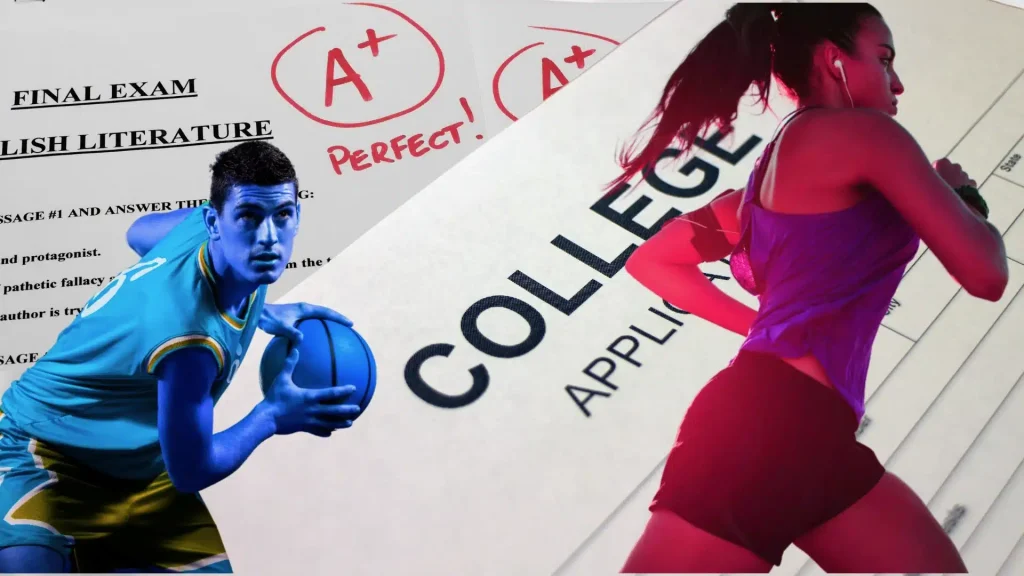Your Squad for Success: Why a Strong Support System is Vital for Student-Athletes

For student-athletes, the constant demands of academic responsibilities and intense training schedules can feel completely overwhelming. In this inherently high-pressure environment, building a strong support system isn’t just helpful—it’s essential for safeguarding mental health and ensuring success both on and off the field. A robust network of friends, family, teammates, coaches, and counselors provides both emotional relief and practical solutions, equipping student-athletes to handle the unique challenges they face.
The Importance of a Support System
A reliable support network serves multiple critical functions:
Emotional Relief Student-athletes frequently experience high levels of stress due to their demanding dual roles and expectations. A strong support system offers a safe space to share concerns and vent frustrations without judgment. Expressing these feelings to trusted individuals alleviates the burden of stress and prevents the dangerous slide toward isolation. This emotional relief is fundamental for maintaining mental well-being and staying motivated.
Practical Advice and Solutions Friends, family, coaches, and counselors offer invaluable advice rooted in their diverse experiences and expertise. Whether an athlete needs time management tips, guidance on a difficult course, or strategies to improve performance, having access to these diverse perspectives helps them navigate challenges far more effectively. This practical support can be the difference-maker in their ability to balance commitments and excel in both areas.
Encouragement and Motivation A strong network provides continuous encouragement and motivation, which is the fuel for persistence. Celebrating achievements and milestones, no matter how small, boosts confidence and reinforces a positive mindset. Encouragement from others helps student-athletes stay focused on their long-term goals and persevere through the inevitable difficult times.
Building Your Support Network
A comprehensive support network should be a diverse coalition of individuals who offer different types of help:
Friends and Peers Friends offer companionship, understanding, and a crucial sense of belonging that provides a necessary break from the intensity of academics and athletics. Forming study groups with peers boosts academic performance, while training alongside teammates naturally fosters camaraderie and mutual support.
Family Family members are often the most reliable source of unconditional love and understanding, especially during stressful periods. Regular communication with family provides stability and reassurance. Parents and siblings offer practical advice based on life experience and provide a safe, honest space for discussing concerns.
Teammates Teammates share the exact experience of balancing academics and athletics, making them an invaluable part of the support system. They understand the specific pressures faced and can offer empathy and relevant advice that outsiders can’t. Open communication and team bonding strengthen these essential relationships.
Coaches Coaches are pivotal, providing not only guidance and motivation for athletic performance but also valuable insight into balancing both roles. They can help develop personalized training plans and often offer academic support. Openly communicating academic commitments and personal challenges with a coach can lead to more tailored and effective support.
Counselors and Mental Health Professionals Counselors and mental health professionals offer specialized support for managing stress and maintaining mental health. They provide a confidential space to discuss challenges and develop effective coping strategies. Regular sessions can help student-athletes navigate the unique pressures of their dual roles and proactively prevent burnout.
Strategies for Strengthening Your Support System
Once the network is built, the athlete must actively work to maintain it:
Open Communication To keep a support system strong, the student-athlete must be proactive and open about their needs, challenges, and goals. Sharing concerns and asking for help when it’s needed prevents isolation and ensures they receive timely support.
Regular Check-Ins Scheduling regular check-ins strengthens relationships and provides continuous support. Whether it’s a weekly phone call with family, a dedicated study session with friends, or regular meetings with a coach, this consistency provides crucial reassurance.
Involvement in Supportive Communities Joining supportive groups beyond the team, such as academic clubs or online student-athlete communities, expands the network, provides additional resources, and fosters a sense of shared experience.
Prioritizing Self-Care While relying on a support system is key, the student-athlete must first prioritize self-care. Adequate sleep, a balanced diet, and dedicated relaxation time are non-negotiable. Taking care of oneself ensures they have the capacity and energy to contribute positively to the support network, making the system work for everyone.
Seeking Professional Help Recognizing when professional help is necessary is a sign of strength, not weakness. Mental health professionals provide specialized support and strategies for managing intense stress. Seeking this help is a proactive and responsible step toward long-term well-being.
Building a strong support system is vital for student-athletes to manage their dual demands effectively. By fostering open communication, regular connection, and leveraging their diverse network, they create a robust foundation that supports their mental health and maximizes their chances for success and achievement.

